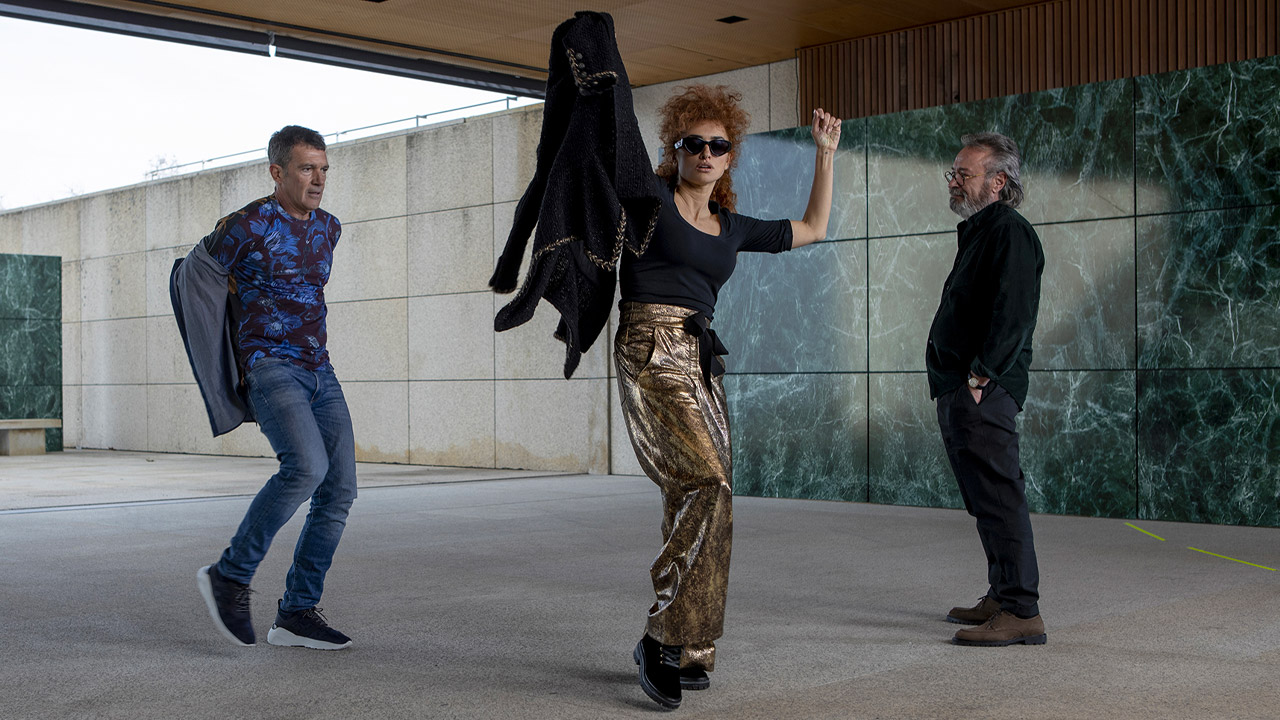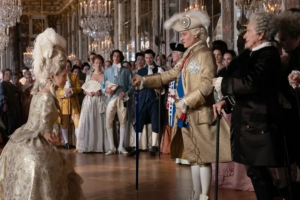Reviewed by GREG KING
Directors: Mariano Cohn, Gaston Duprat
Stars: Penelope Cruz, Antonio Banderas, Oscar Martinez, Jose Luis Gomez.

This Spanish/Argentinian co-production stars Penelope Cruz and Antonio Banderas and was one of the hits at the recent Spanish Film Festival. There have been many films that have explored the filmmaking process, from Singin’ In The Rain through to The Player, Robert Altman’s star studded two finger salute to Hollywood through to the Coen brothers’ recent Hail, Cesar. Official Competition skewers the filmmaking process, serving up a trenchant critique of the film industry, the precious egos of actors and directors and their pretentious airs, vanity projects, press junkets and premieres, and even the independent art house film scene.
On his eightieth birthday, pharmaceutical millionaire Humberto Saurez (Jose Luis Gomez) reflects back on his life and legacy and realises that he has actually achieved very little that will leave a mark on the world. He donates millions every year to tax deductible foundations, but he wants to leave a more permanent memento bearing his name. What to do? Build a bridge and put his name on it? Produce an acclaimed and prestigious award-winning film?
Choosing the latter option he acquires the rights to a Nobel Prize winning novel called Rivalry, dealing with the tense relationship between two embittered and estranged brothers as the result of a family tragedy. Even though he hasn’t read the book this becomes a passion project for him. He hires the best talent to bring this vanity project to fruition. He hires award winning auteur Lola Cuevas (Cruz) to helm the project.
She casts two prestigious actors to play the lead roles of the estranged brothers. Felix Rivero (Banderas) is a popular star who has made it big in Hollywood and has amassed a number of awards and accolades along the way. He is an action movie star who is determined to show his more dramatic side. Ivan Torres (Oscar Martinez) is a revered actor who comes from a theatrical background, and he is more concerned with the integrity of his work and finding the truth of his character. He is self-important and openly disdainful of the cinema and cinema audiences. Neither has worked together before, and they constantly engage in some one-upmanship as they try to undermine each other. Their rivalry somehow mirrors the main themes of the novel they are bringing to the screen.
But their contrasting styles and egos lead to plenty of tension during the lengthy rehearsal period, which Lola stokes and manipulates in an effort to bring out the best from her stars. She berates them and humiliates them, and her crazy unorthodox methodology begins to take its toll on their psyche. In one scene she even dumps many of their awards into an industrial strength shredder.
Official Competition comes from Argentinian filmmakers Mariano Cohn and Gaston Duprat who come from a background in television and experimental videos. The pair gave us The Distinguished Gentleman in 2016.
Sporting an impressive head of fiery red hair Cruz relishes her role here and revels in Lola’s idiosyncratic approach to her craft. Banderas brings a cocky swagger and confidence and a touch of self-deprecation to his portrayal of the egotistical Felix, a role that seems tailor made for him and has numerous meta touches. There is great chemistry between Cruz and Banderas that adds to the film. Martinez (who previously worked with the filmmakers on The Distinguished Gentleman) is less showy but acquits himself well as the egocentric and arrogant but more obscure Torres. A couple of secondary roles include the actors’ beleaguered assistants, who have to suffer their insults and temperamental outbursts.
The film boasts some impressive production and set design from Alain Bainee, (Vicki Cristina Barcelona, etc), which creates Lola’s modernistic looking but cold, brutalist glass and concrete mansion which also doubles as the rehearsal space. The film has been nicely shot by cinematographer Arnau Valls Colomer. He cleverly uses mirrors, large screens and distorted images to symbolise the characters’ fractured egos.
While the film has done well on the festival and art house circuit it has a distinctly offbeat European sensibility. It is not immediately accessible, and lacks broader appeal beyond film buffs and cineastes. Its black humour may not be to everyone’s taste, and the ending may be a bit too bleak and ironic and unsatisfying for many.
★★☆



